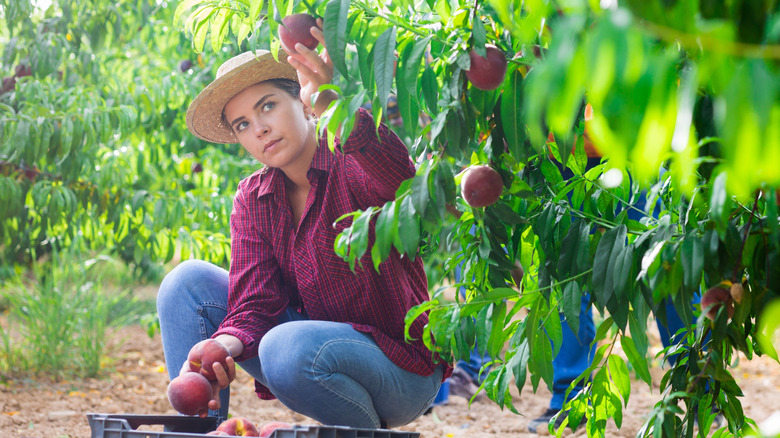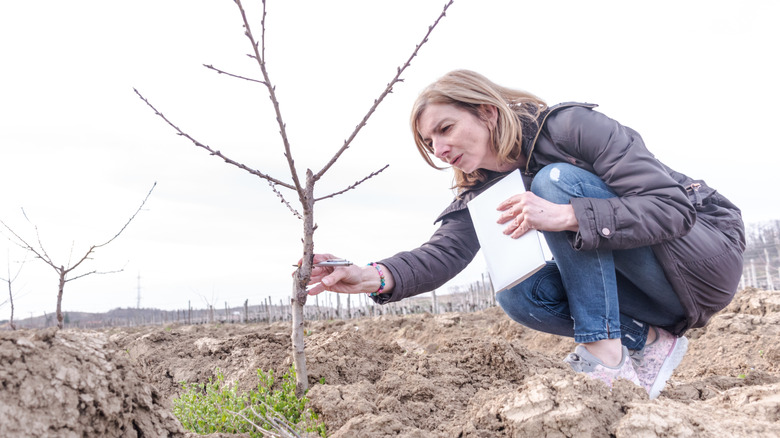Is Adding Epsom Salt When Growing Peach Trees A Garden Boost Or A Death Wish?
When it comes to growing healthy, juicy peach trees, gardeners are often searching for the magic ingredient to ensure success. Epsom salt, or magnesium sulfate, is one of the so-called "miracle" solutions that gets tossed around as a cure-all for everything from yellowing leaves to stunted root growth. If you've never heard of this hack before, you might wonder what Epsom salt is and what does it do for your garden. Magnesium is a component of Epsom salt and an essential nutrient for plants that helps with chlorophyll production and nutrient absorption. So, wouldn't adding a little extra magnesium to the soil be a surefire way to boost growth and fruiting? Well, not so fast. While Epsom salt might help some plants in specific situations, using it on peach trees could do more harm than good.
Magnesium is a secondary macronutrient that helps peach trees produce chlorophyll, however most soils naturally have enough magnesium for peach trees to thrive. Applying Epsom salt without first testing the soil can result in an excess of magnesium, which interferes with the tree's ability to uptake other crucial nutrients like calcium and potassium. This nutrient imbalance could lead to issues like weak root systems, poor fruit production, and even make the tree more susceptible to diseases. It's easy to assume that adding Epsom salt will give your trees a quick boost, but in reality, you could end up with a stressed tree that produces fewer peaches.
Epsom salt is no miracle solution for peach trees
The hype around Epsom salt likely comes from its benefits in very specific situations, like magnesium-deficient soil or potted plants where nutrients are lost more quickly. However, the "more is more" mentality just doesn't hold up when it comes to peach trees. Peach trees don't typically suffer from magnesium deficiencies, especially if the soil has been tested and amended with organic matter or balanced fertilizers. In fact, most garden soils naturally contain plenty of magnesium, and over-application of Epsom salt can build up harmful salts in the soil. These salts can inhibit calcium uptake and damage the roots, creating conditions much worse than a simple nutrient deficiency.
While generally uncommon, peach trees with a magnesium deficiency may display yellowing between the leaf veins, also known as chlorosis. Rather than blindly adding Epsom salt to solve chlorosis, it's wise to have a soil test done before making any changes. This way, you know precisely what your peach tree needs and can avoid creating toxic imbalances. If your soil does turn out to be low in magnesium, there are safer ways to add it without risking damage to your tree. For example, you can try making your own DIY compost or using balanced fertilizers that contain magnesium in controlled amounts. Instead of pouring Epsom salt into your garden, you're better off exploring other smart ways to use Epsom salt around the house.

